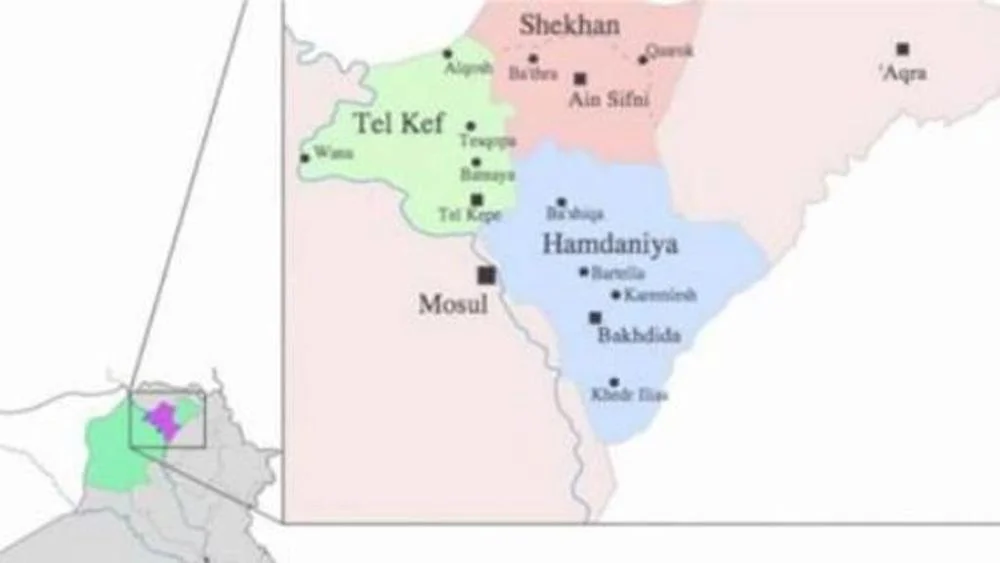Nineveh Plain, the Chaldean Church: No to the Baghdad-Kurdish dispute
The Chaldean Patriarchate of Babylon sets out his vision on the “future of Christian cities” in the area, which have become a ground for clashes, even military, between the Iraqi Government and the Autonomous Region of Iraqi Kurdistan. An indirect effect of the fragile balances imposed in the entire region since 2003, after the fall of the Baathist regime, with the decisive involvement of the US-led internationals
Nineveh Plain Credit: La Stampa
GIANNI VALENTE
ROME
Seven months have already passed since the entire city of Mosul and the whole plain of Nineveh have been freed from the dominion of the Jihadists of the so-called Islamic State (Daesh). Yet, to this day, many cities of the Nineveh Plain, once inhabited by Christians, “are still empty”, and no resident has returned to their homes, abandoned in the summer of 2014 in the face of the advancement the “Caliphate’s militias.
The Chaldean Patriarchate of Babylon, who leads the most consistent Christian community rooted in Iraq, denounces this. And it attributes the failure of Christian returning to their homes “to the inability of the central government” to rebuild houses and infrastructure devastated by the conflict, but also and above all to the new winds of war that are striking right on the Nineveh Plain, which has become a disputed territory between the central government of Baghdad and the Kurdish Peshmerga militias, who belong to the Autonomous Region of Iraqi Kurdistan.
The Chaldean Patriarchate has just circulated a document to communicate his vision on the “future of the Christian cities of the Nineveh Plain”, and to reaffirm that “Christians are not foreign to Iraq, but represent indigenous peoples in the country”.
The fate that seems to be afflicting the Nineveh Plain appears increasingly paradoxical. The villages of that area represented historical landmarks of indigenous Christian communities in what was once ancient Mesopotamia. And precisely around that Plain, since time immemorial the project of an “autonomous region” to be assigned to Christians was cultivated within sectors of the Iraqi Christian communities, in order to realize at least partially the ancestral dream of a “national hearth” for the Chaldean, Assyrian and sire communities.
On the night of 6-7 August 2014, tens of thousands of Christians rushed and fled quickly from Qaraqosh, Kramles, Talkief, Bartalla and other settlements in the area, after the Iraqi army and the Kurdish Peshmerga troops in the region had retreated in front of the advance of the Jihadists. In recent years, there has been no initiative nor declaration “in defense of Iraqi Christians” by powers and lobbies that did not refer to the need to guarantee and defend the return of Chaldean, Syrian and Assyrian baptized people to the towns and villages of the Nineveh Plain.
Yet, together with Kirkuk, that region has become the epicenter of the new clash between the government of Baghdad and the separatist of the Autonomous Region of Iraqi Kurdistan, led by the current leadership to proclaim its independence through the plebiscite result of the pro-independence referendum called on 25 September.
The new conflict represents an indirect and delayed effect of the fragile balances imposed in the entire region since 2003, after the fall of the Baathist regime, with the decisive involvement of the internationally-led US-led forces. Since then, the forces prevailing in Iraqi Kurdistan have been claiming, in disagreement with the central government, control of 5 “disputed areas”, including those of the governorates of Nineveh and Kirkuk.
The Chaldean Patriarchate, in outlining his “vision” on the future of the Christian cities of the Plain, recognizes that “the jurisdiction over the plain of Nineveh, unified, stable and protected up until 2003, is today disputed between the Iraqi government and the Kurdish forces”. It recalls that after the referendum for the independence of the Autonomous Region of Iraqi Kurdistan, there were military clashes in that area, which opposed the Iraqi army and the popular military mobilization groups (Al-Hashd) to the Peshmerga. In the towns of Telkaif and Baqofa “innocent children were wounded, and the homes of Christian families were used as defense posts. As a result, many residents of these cities have fled again, creating a new state of anxiety and fear. All this - the Patriarchate points out - will lead to a further migration of Christians abroad.
In order to prevent the total cancellation of the Christian presence from the region, the Chaldean Patriarch Louis Raffael Sako and his collaborators are not limited to declarations of principle, but indicate in their pronouncement some concrete measures: they call for defusing the ongoing judicial dispute on the Nineveh Plain, returning to the pre-2003 situation, when the central government had regained control over the whole region; they recommend that all local militias and armed groups - often organized on an ethnic-religious basis - be integrated and enclosed in the national army and federal security forces; and they call on Christian political organizations to coordinate jointly.
Finally, the Chaldean Patriarchate renews his appeal to the Iraqi government and that of the Autonomous Region of Kurdistan to “sit at the “dialogue table” to reconsider the situation and resolve all unsettled problems”, recognizing both that “the suffering peoples of Iraq and Kurdistan refuse to continue the war”.
Article courtesy of La Stampa

